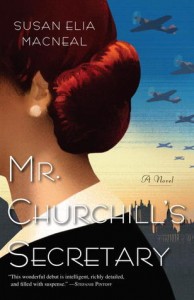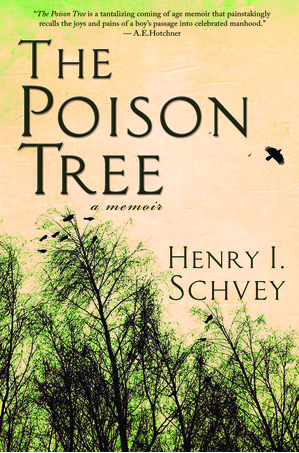Book Review: Mr. Churchill’s Secretary by Susan Elia MacNeal
Share the post "Book Review: Mr. Churchill’s Secretary by Susan Elia MacNeal"
Book Review: Mr. Churchill’s Secretary by Susan Elia MacNeal
Reviewed by Julie Failla Earhart
Bantam Books wastes no effort in targeting its audience with this Susan Elia MacNeal’s debut. Up front readers are told that if they are fans of Jacqueline Winspear, Laurie R. King, and Anne Perry, they will love this book. I beg  to disagree. I’m a huge fan of Winspear’s Maisie Dobbs novels, but Maggie Hope, the novel’s protagonist, doesn’t hold a candle to Maisie.
to disagree. I’m a huge fan of Winspear’s Maisie Dobbs novels, but Maggie Hope, the novel’s protagonist, doesn’t hold a candle to Maisie.
London, 1940. Winston Churchill has just been sworn in as Britain’s Prime Minister. The island nation is on the brink of yet another great war. Maggie has come to London to settle her grandmother’s estate and to sell her rundown Victorian home. However, the house proves difficult to sell and expensive to maintain. She enlists some friends to rent some of the rooms and as London begins to fill with war workers, more and more people take up residence in the decaying mansion; residents she gets to know and love. While she is there, Britain declares war on Germany. The Blitz is sure to come any day now.
Maggie postpones her Ph.D. studies in advanced mathematics at M.I.T. to do what she can for her adopted country. The child of British parents, Maggie immigrated to America as a small child to be raised by her aunt after her parents are killed in an auto accident. She had a degree in code-breaking and advanced mathematics. A talented young woman, Maggie is better at deciphering codes than most men, but her gender tends to be her biggest obstacle.
After getting a job as the new typist at 10 Downing Street, Maggie makes friends and enemies in the underground offices. Soon she becomes the typist for a beleaguered Churchill. As the story progresses, one of the Maggie’s friends who lives in her grandmother’s home, is murdered. Does this mean that Maggie’s life is in peril? Or the others?
As she deals with that, she gets up the nerve to finally visit her parents’ graves; however, one is missing. As she struggles to learn who murdered her friend as well as where her other parent is, the war escalates into all-out hell.
MacNeal does an extraordinary job with the historical details. Maggie has a lot of spunk, but things seem to happen too easy for her. Was it fate or mere coincidence that she winds up as Churchill’s secretary? And how could she so easily find a missing parent in a city torn apart by the Blitz.
MacNeal also does a wonderful job on hooking the reader at the very beginning with the first sentence: Half an hour before Diana Snyder died, she tidied up her desk in the typists’ office of the Cabinet War Rooms. From a reader’s point of view, it is delightful; from a craft point of view, it is overly long and passive. Unfortunately for readers, that opening sentence is about as tense as the story line gets. The passive voice remains constant throughout the story. Never did I feel that Maggie was in any grave danger. The story moves along well enough, but it is not the page turner that Winspear, King, and Perry’s novels are. For me the best part of the novel was the descriptions of Churchill, how he was to work with, the code breaking, and descriptions of the underground War Rooms.
Bantam has already optioned the next Maggie Hope novel, titled Princess Elizabeth’s Spy. For me, Maggie isn’t a strong enough character to make me interested in following her adventures.


